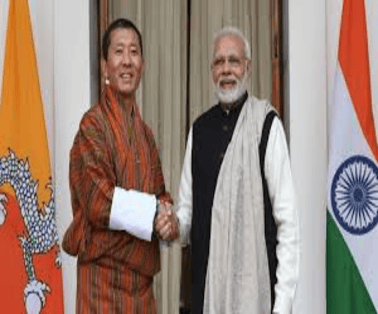In a major development, Russia President Vladimir Putin recently visited Pyongyang, culminating in a landmark pact that significantly deepens Russia North Korea relations. The new agreement includes military support, economic cooperation, and technological assistance, signaling a closer alignment between the two nations amid rising global tensions.
Key Features of the Russia-North Korea Pact
-
Mutual Military Support
- Both countries pledged to provide immediate military assistance if either is attacked.
- Under Article 4 of the agreement, support must follow Article 51 of the UN Charter and national laws.
- The pact echoes the 1961 Russo-North Korea Treaty of Friendship, Cooperation, and Mutual Assistance.
-
Technological Assistance
- The agreement includes unspecified technological support—crucial for North Korea’s ambitions to enhance its missile guidance systems and long-range nuclear capabilities.
Wider Areas of Bilateral Cooperation
The renewed Russia North Korea relations also include cooperation in the following areas:
- Trade and Investment: Plans to boost economic and cross-border cooperation.
- Science and Technology: Focus on shared research and innovation.
- Education and Culture: Promoting exchanges in health, sports, tourism, and environmental protection.
- Legal and Security Cooperation: Extradition, anti-crime efforts, and mutual legal support.
- Media and Information: Combating disinformation and promoting positive narratives.
Strategic and Regional Impact
-
Security Concerns in East Asia
- South Korea and Japan see the pact as a major security threat, especially with North Korea under a stronger Russian security umbrella.
- Japan is re-evaluating its pacifist constitution, while South Korea considers enhanced military strategies, possibly including arms exports.
-
Global Reactions
- The pact alarms NATO allies and global stakeholders.
- Concerns over nuclear proliferation due to possible technological upgrades to North Korea’s arsenal.
- Potential strengthening of U.S.-Japan-South Korea trilateral defense cooperation.
-
Authoritarian Alignment
- This alliance symbolizes increased coordination among authoritarian regimes to counter Western liberal democracies, impacting global geopolitics.
Historical Background of Russia North Korea Relations
- 1950s–60s: The Soviet Union played a key role in establishing and supporting North Korea under Kim Il Sung, especially during the Korean War.
- 1961: Signing of the original mutual defense treaty between the USSR and North Korea.
- 1991: Collapse of the USSR ended strong support, contributing to North Korea’s economic crisis and famine.
- 2000: Putin visited Pyongyang, becoming the first Russian leader to meet Kim Jong Il, renewing bilateral ties.
- Mid-2000s: Russia supported UN sanctions against North Korea’s nuclear program as a UN Security Council member.
- 2012: Russia forgave most of North Korea’s debt, signaling a reset in relations.
- 2019: Kim Jong Un met Putin in Vladivostok, further cementing strategic ties.
Conclusion
The evolving Russia North Korea relations mark a significant shift in regional and global power dynamics. With enhanced military commitments, economic cooperation, and a shared anti-Western posture, this renewed alliance will have far-reaching implications for East Asian security, global nuclear stability, and international diplomatic alignments in the coming years.
To Download Monthly Current Affairs PDF Click here
Click here to get a free demo
Discover all about CLAT Exam



